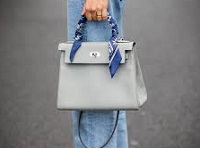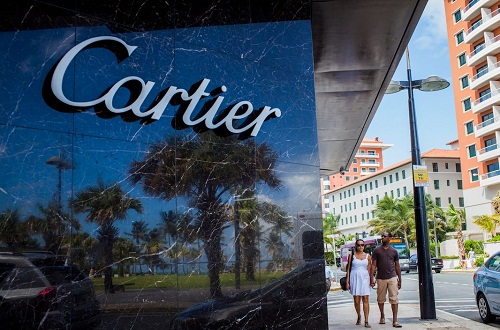 The COVID-19 pandemic has led people to reconsider the fate of luxury apparels they treasured for generations. ThredUp estimates the resale of luxury apparels have grown 21 times faster over the past three years, says a CNBC report. The report says, secondhand apparels are being adopted by not just youngsters but also boomers and Gen X’ers. As per ThredUp’s Resale Report, 50 per cent consumers are cleaning out their closets more often than they did pre-COVID.
The COVID-19 pandemic has led people to reconsider the fate of luxury apparels they treasured for generations. ThredUp estimates the resale of luxury apparels have grown 21 times faster over the past three years, says a CNBC report. The report says, secondhand apparels are being adopted by not just youngsters but also boomers and Gen X’ers. As per ThredUp’s Resale Report, 50 per cent consumers are cleaning out their closets more often than they did pre-COVID.
Luxury resellers readjust business models
Milton Pedraza, Founder, Luxury Institute, says, more people are visiting resale sites to sell their possessions out of necessity. These include people from higher income groups who have lost their jobs. But, this has created more supply than demand in the market. With consumers being increasingly impacted by the economic fallout of COVID-19, demand for these products is likely to be far less than supply. He estimates demand for luxury apparels in the US to decline further over the next 18 to 36 months.
Coronavirus has forced resale companies to adjust their business models to short-term and longer-term challenges including difficulties in finding the required inventory; meeting consignment partners conforming to COVID guidelines and lack of physical social events. Stocks of The RealReal have fallen to almost half of the value of its first-day trade after its May 2019 IPO. The company’s revenues declined 21 per cent in its most recent quarter ended June 30, while net loss grew to near-$43 million, up from roughly $26 million in the same period a year ago. Julie Wainright, Founder and CEO, says the company has moved further away from the early COVID shutdowns. Its New York market has returned to growth since July though Los Angeles still lags due to rising COVID cases in California.
required inventory; meeting consignment partners conforming to COVID guidelines and lack of physical social events. Stocks of The RealReal have fallen to almost half of the value of its first-day trade after its May 2019 IPO. The company’s revenues declined 21 per cent in its most recent quarter ended June 30, while net loss grew to near-$43 million, up from roughly $26 million in the same period a year ago. Julie Wainright, Founder and CEO, says the company has moved further away from the early COVID shutdowns. Its New York market has returned to growth since July though Los Angeles still lags due to rising COVID cases in California.
The company’s supply is recovering, says Mathew Gustke, CFO. While apparel sales have declined, the company has witnessed a growth in sale of handbags and jewelry, along with home furnishings and art. The company quickly adapted to curbside pickup and virtual appointments for consignment partners. With virtual appointments and curbside pickup, the company also sends a van for apparel delivery. Though the company expects in-home appointments to eventually return, it considers virtual plus curbside pickup to be more efficient and effective.
Legacy retailers tap the resale market
Some of the biggest legacy retailers like Macy’s Nordstrom and Gap are getting in to resale market. In August 2019, Macy’s collaborated with ThredUp to launch a 40-store pilot program to sell secondhand clothing. Nordstrom started selling secondhand apparel, shoes, and accessories at its New York City flagship store, in early 2020.
By selling secondhand goods, these retailers are not only showing their concerns for consumers’ demands but also trying to attract younger consumers to their stores.












